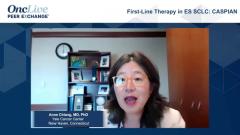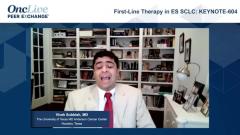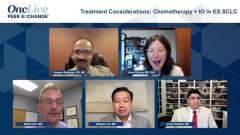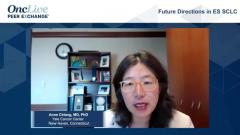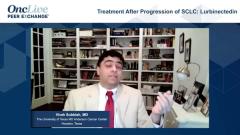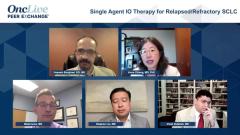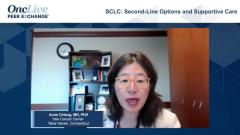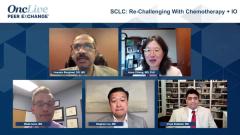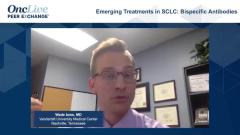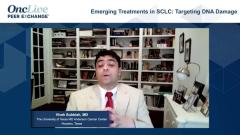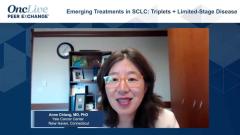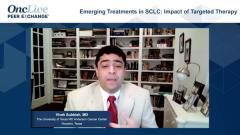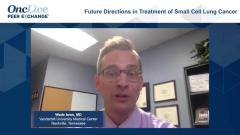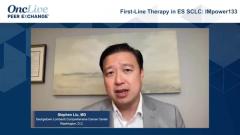
Single Agent I/O Therapy for Relapsed/Refractory
Lung cancer expert Anne Chiang, MD, PhD, considers the recent withdrawal of FDA-accelerated approval for nivolumab and pembrolizumab for patients with relapsed extensive-stage small cell lung cancer.
Episodes in this series

Hossein Borghaei, DO, MS: Anne, we heard about the withdrawal of approval of nivolumab and pembrolizumab in relapsed disease. These were voluntary withdrawals by both BMS [Bristol Myers Squibb] and Merck regarding these 2 drugs. What’s your take on that?
Anne Chiang, MD, PhD: It’s interesting if you learned from the withdrawal of pembrolizumab and nivolumab and think a little about lurbinectedin and see what’s going to happen. The pembrolizumab trial had 83 patients, and the overall response rate was 19%. The nivolumab trial had 109 patients, and the overall response rate was 12%. The FDA approvals were withdrawn because in the case of the larger phase 3 randomized trials of nivolumab, the BMS CheckMate 451 was negative. And for pembrolizumab, the KEYNOTE-604 trial was essentially negative statistically, even though there may have been a signal there.
What’s going to happen with lurbinectedin? I’m not sure. That’s also a small trial. It does have a better overall response rate. I’m not sure what’s going to happen. That being said, every oncologist, including me, has a story of a patient who did extremely well with a single-agent immune checkpoint inhibitor. There’s no doubt that this is a useful tool in our armamentarium for our patients, especially those who can no longer tolerate chemotherapy. That was really the discussion in the NCCN [National Comprehensive Cancer Network] small cell guidelines group, which ultimately voted to keep both of these drugs in the NCCN Guidelines—although as a category 3, which indicates some discordance in the consensus. They’re options for our patients who can’t tolerate chemotherapy or have a good performance status and can still be treated. Because we all know a patient who’s done well on these kinds of therapies, it’s complex.
Hossein Borghaei, DO, MS: Let’s get this out of the way. Topotecan’s name has come up a couple of times. We all know topotecan represents a drug that none of us would like to use, but it’s also interesting that even our best drugs so far have not been able to beat topotecan in head-to-head comparison. It remains an FDA-approved approach for patients with refractory small cell lung cancer.
TRANSCRIPT EDITED FOR CLARITY


